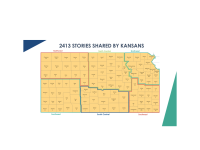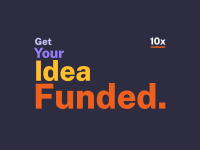The Ministry of Possibilities is a virtual ministry created to incubate and solve the systemic impossibilities of government.
It works by creating time-bound departments experimenting together to ask impossible questions and disrupt the conventional systems with leapfrog solutions that are yet to be explored
Its focus areas & mandate are:
To IDENTIFY impossibilities
To INCUBATE virtual, timebound departments/teams to solve and explore the impossibilities
To EDUCATE and train on the mindset of…
Innovation Tag: Innovation Labs and Units
Work 2.0 Lab is a new collaborative working and learning environment. It is available to all agencies and civil servants in government and other organisations involved in the 2-years experiment. The purpose is to promote better, higher quality ideas, solutions and decisions on cross-cutting matters outlined for example in the government program. Work 2.0 Lab provides the structures and platforms (environments, spaces, networks, methods) for collaborative learning needed to work together.
The State of Kansas piloted ‘Our Tomorrows,’ a novel framework to capture family experiences about thriving and surviving, to ensure that policies and practices meet the needs of families. The approach makes a large amount of data (over 2,500 narratives) directly accessible to decision-makers and the individuals who provided it. Communities make sense of patterns that emerge from stories to create a portfolio of small actions that will make Kansas the best place to raise a child.
10x is a stage-gated internal investment program for the United States government, modeled on modern venture capital practices, that funds the exploration and development of new product ideas, sourced from civil servants, to significantly improve how the government uses technology to serve the public good.
The project was inspired by the need to promote coding in Greek primary education. It fostered the exploration of the actual use of digital technologies in the Schools, the way new technologies could transform School classrooms into real labs and the level of impact in the improvement of the digital skills of teachers and pupils.
Combining Design Thinking and Rapid Impact Evaluation methodologies allows for a user-centered counterfactual to measure the impact of the current program design, while simultaneously identifying programmatic design flaws and generating solutions for improvement. The participative process for co-developing the counterfactual triangulates multiple user perspectives and data sets to provide new lines of evidence to pursue innovative solutions and offer a more iterative approach to evaluation.
Case Study
The Energy and Resources Factory – a collaborative venture by the joint Dutch water boards
The Energy and Resources Factory is a collaborative venture by the Netherlands’ 21 water boards. It is an organization that is focused on turning wastewater into a source of renewable energy and resources.
The GovTech Lab is a public sector team focused on encouraging the creation and use of innovative solutions for the government. The GovTech Lab helps the public sector identify challenges that can be solved with emerging technologies, engages startups and SMEs, creating innovative solutions and accelerating startups in #GovTech and #TechForGood space.
The digital economy is booming in Medellín. So is digital tax evasion. To identify potential tax evaders, the local treasury department used to detect unregistered online stores manually. Since the use of social media for economic activities has grown exponentially, the agency has now developed a bot that automatically scrapes Instagram for such stores - and officers can use their time instead to work with store owners to formalize their businesses.
Societal challenges such as demographic change affects rural areas in particular. The Social Foresight Lab is an innovative participatory approach towards rural development and technology transfer to address these challenges. It combines foresight, needs assessment and strategy development. Rural areas benefit, as it takes into account regional characteristics, initiates new cooperations among regional stakeholders, and integrates technological and social innovations into regional development.



